Major Depressive Disorder
You deserve to feel bettter. We can help.
Lift Your Head out of the Water
Major Depressive Disorder (MDD) can be painful, confusing, and isolating, making it hard for people to recognize that they may need support. Whether you are experiencing a depressive episode, trying to finally find relief after multiple depression treatments have failed to work, or just realizing that you need help, we are here for you.
Mindful Health Solutions offers multiple alternative treatments for clinical depression therapy that allow people to work through what is going on in their minds and bodies as well as learn coping mechanisms and tools to help them get back to feeling like themselves.

What is clinical depression?
Clinical depression, also known as Major Depressive Disorder (MDD), is a serious mood disorder. According to the CDC, 6.7% of the population will experience a depressive episode this year, and 14% will have an episode within their lifetimes. More than 40% of patients have a treatment-resistant form of clinical depression, which does not respond to medications. Ultimately, depression is common and is unlikely to go away on its own.
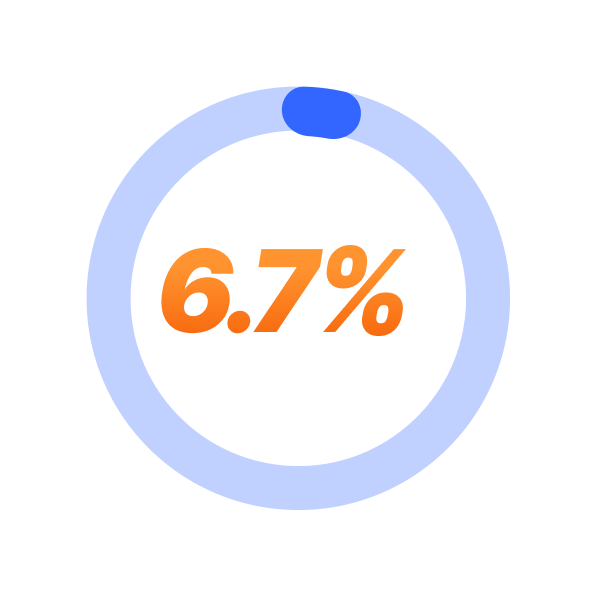
of the population will
experience a depressive
episode this year
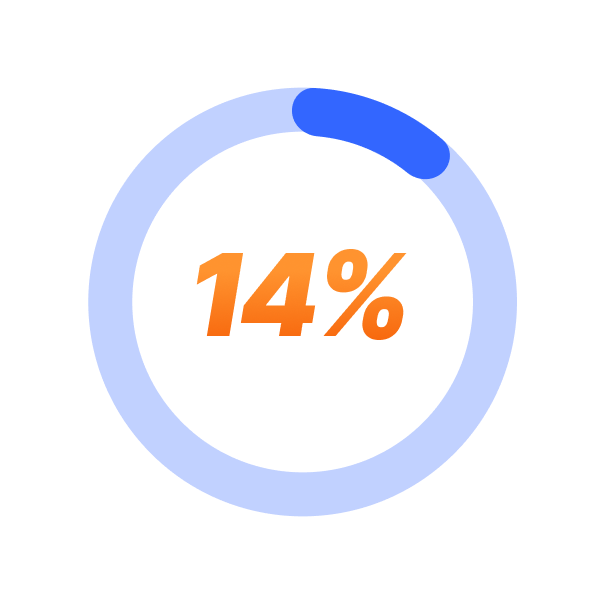
of the population will
experience a depressive
episode in their lifetimes

Over 40% of patients have a
treatment-resistant form of
depression that does not
respond to medications

What causes depression?
While exact causes of clinical depression or treatment-resistant depression are difficult to determine, research has shown that clinical or treatment-resistant depression may be caused by one or many factors, including but not limited to:
- A physical condition
- A mental condition
- Genetics or family history
- Major events or life changes
- Substance misuse
- Certain medications
How can I tell if I'm depressed?
Depression is a challenging, and often debilitating, mental health condition that needs to be diagnosed and treated as soon as possible to achieve the best results. To begin your treatment journey for major depressive disorder, it’s important to check in with yourself, especially if you are undergoing stress and/or emotional changes. Ask yourself these important questions:
- How are you coping with stress? What coping skills do you have?
- Is your daily routine (sleep, appetite, energy, motivation) being affected in any way?
- Are you seeing changes in your grades, work performance, relationships, or social interactions?
More specific questions that you can ask yourself are:
- Are you staying in your room/home all/most of the day and/or avoiding social interactions?
- Do you cry more days than not?
- Do you have a change in your appetite or weight?
- Are you no longer interested in hobbies or activities that used to bring them joy?
- Are you quick to anger or agitation?
- Do you hurt yourself?
- Are you not taking care of your physical appearance?
- Are you participating in risky behavior?

What are the common symptoms of depression?
Major depressive disorder, or clinical depression, comes in many forms, with a wide variety of depression symptoms based on an individual’s genes, environment, and brain chemistry. However, many common symptoms of depression include:
- Persistent sadness or anxiety
- Feeling hopeless, worthless, helpless, guilty
- Being pessimistic or negative
- Quick to irritability or frustration
- Difficulty making decisions
- Suicide attempts or thoughts of death
- Restlessness
- Disinterest in hobbies or activities that used to bring joy
- Fatigue
- Sleeping too little or too much
- Finding it hard to concentrate or remember
- Significant changes in appetite and/or weight
- Unexplainable and persistent headaches, aches, or digestive problems
What are the treatment options for depression?
Do you find yourself wondering how to pull yourself out of depression, or asking, “How can I overcome severe depression?” Are you experiencing concerning or unrelenting depression symptoms that just won’t go away?
Clinical depression treatment, including for treatment-resistant depression, can come in a variety of formats, and finding the plan that works best for you is the first step in taking care of the depression symptoms you may have. At Mindful Health Solutions, we offer the most advanced and effective evidence-based depression therapies all under one roof in order to help you finally find relief. Traditional medications as well as therapy can be the first line of defense, but if depression becomes more treatment-resistant after two or more medication attempts, alternative depression care options, such as TMS, IV ketamine, and SPRAVATO (Esketamine), can be options to help lessen severe depression symptoms.
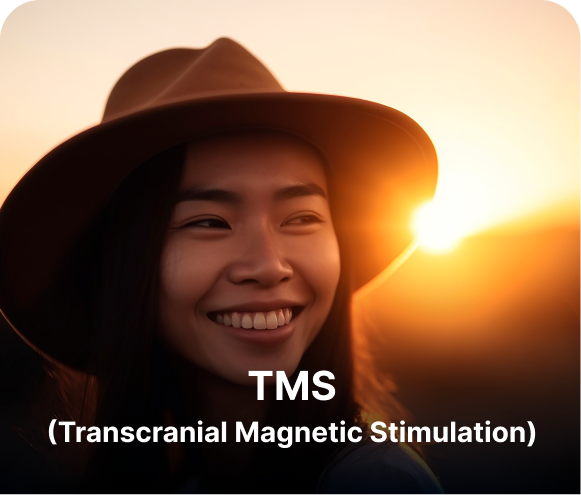
TMS, or transcranial magnetic stimulation, is a safe, non-invasive procedure that uses magnetic pulses to stimulate the brain. It’s the first and only drug-free depression therapy to be FDA-approved for the treatment of major depressive disorder.
Learn More
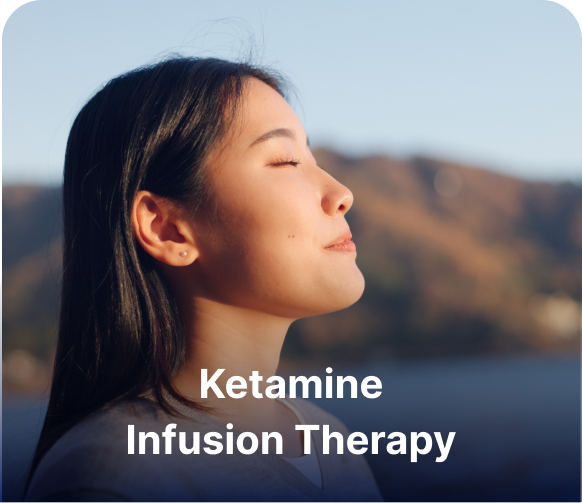
Ketamine Infusion Therapy is an intravenous treatment designed for patients struggling with a number of psychiatric conditions, including major depressive disorder, treatment-resistant depression, bipolar depression, PTSD and trauma disorders, post-partum depression, anxiety, and OCD.
Learn More

SPRAVATO (Esketamine) for depression is a safe, non-invasive treatment that is thought to create new connections in the brain. It’s the first and only FDA-approved treatment for major depression that targets the glutamate system.
Learn More
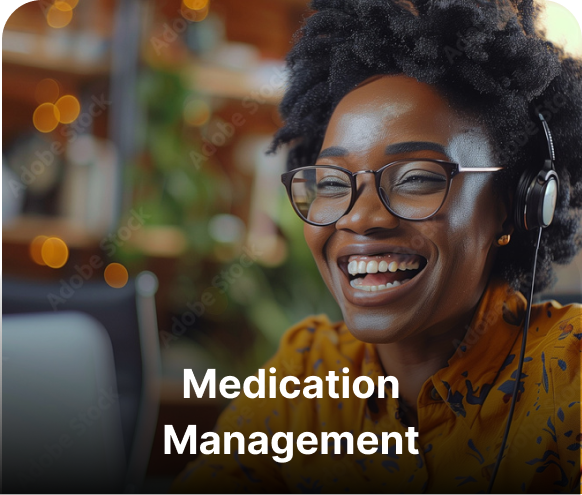
Proper medication management care ensures that you receive the most effective and appropriate medications for depression and other mental health conditions. Our psychiatrists work closely with all patients to monitor and adjust medications as needed.
Learn More
We've Helped Thousands of Patients Heal
At Mindful Health Solutions, we believe everyone deserves fast relief from major depression. Our team of experienced and compassionate practitioners is committed to listening to your history, symptoms, concerns, and anything else you feel is important for them to know. They will advocate for your health and be ambitious about finding you happiness.
We’ve helped thousands of patients heal and lead fulfilling lives with a combination of medication, therapy, and innovative interventional treatments designed to help you break through the fog of depression for lasting recovery. These alternative treatments for depression include Transcranial Magnetic Stimulation (TMS), Spravato (Esketamine), and IV ketamine therapy, provided by licensed and experienced clinicians who understand your needs in order to ensure a customized mental health care experience.
Interventional treatments for depression care have led thousands of patients to finding their hope and happiness. Now, it’s your turn. Let us help you heal from chronic, major depression; treatments for depression therapy are customized to your unique needs.
